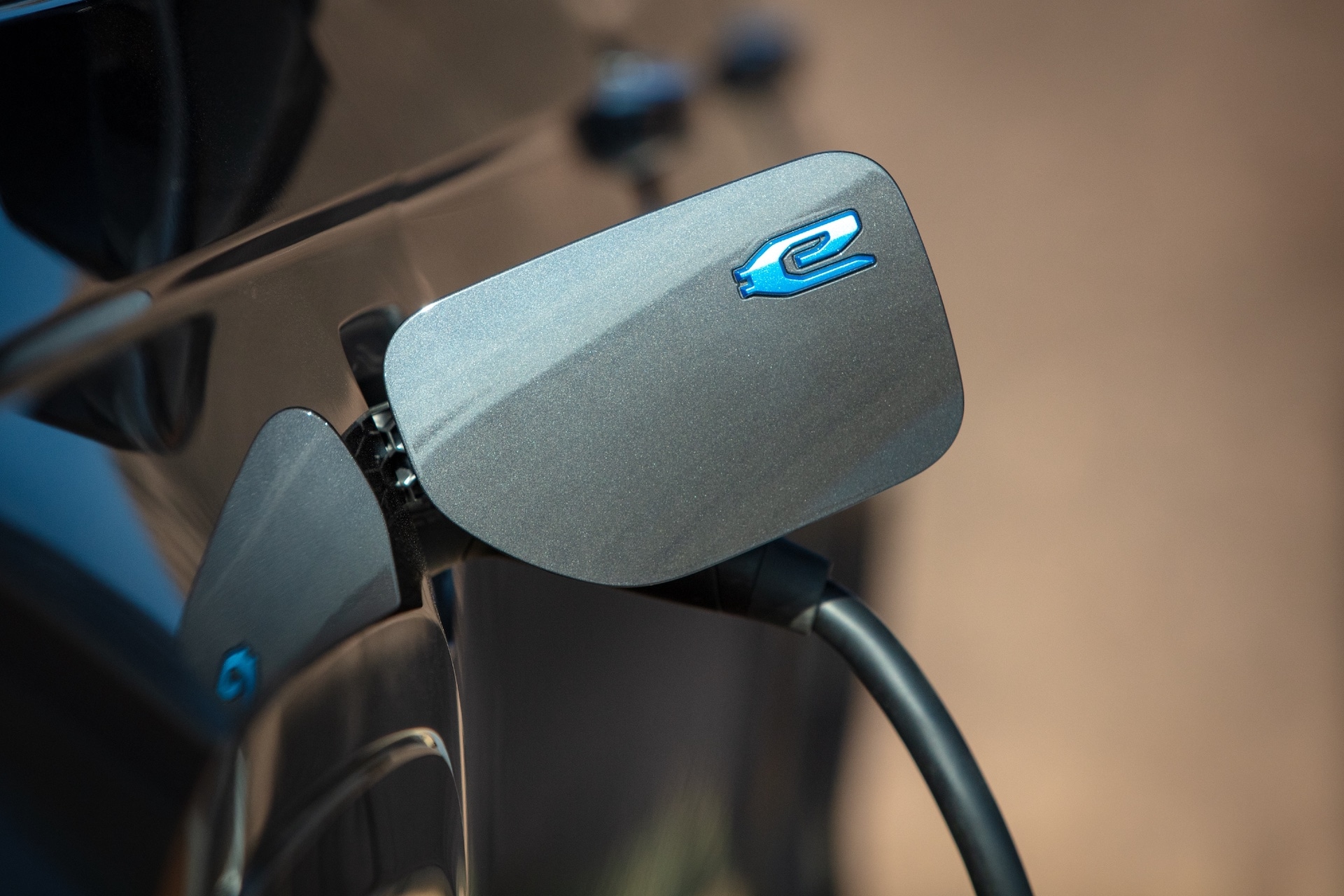
Stellantis has teamed up with Zeta Energy to boost the performance and sustainability of EVs with advanced lithium-sulfur batteries. The result is the new 2025 Jeep Recon EV- a mid-size SUV that mixes Jeep’s classic off-road capabilities with electric power. It’s a great choice for off-roading enthusiasts looking for a new sustainable, high-performance option.
Jeep Recon EV Prototype: What We Know
We already know it’s Jeep’s electric off-roader, but let’s get to know some of its key features by hopping into the Jeep Recon EV prototype vehicle.
Rugged Jeep Design, Electrified
Off-roading fans will find everything they need in the new Jeep Recon EV- all-terrain tires, a sturdy rear plate for tough trails, and a side-hinged tailgate with a rear-mounted spare tire. And the new Recon EV’s design hasn’t forgotten its deep Jeep roots. Inspired by the Wrangler, Jeep’s signature boxy proportions, removable doors, retractable cloth top, and tow hooks are prominently featured in the new Recon EV.
Modern, Functional Interior
While keeping some of the classic Jeep interior design—complete with a grab handle for the passenger—the Recon EV brings advanced technology to the motif, too. A quick look inside Jeep’s new EV shows a modernized interior with twin digital display screens, rotary-style gear selection, and anti-roll bar disconnect switches for off-roading.
Electric Off-Road Performance
Starting at approximately $60,000, and delivering sustainability and impressive performance, the Jeep Recon EV is a great adventure companion.
This new EV offers the Jeep Wrangler’s gas and hybrid models some friendly inter-brand competition, promising better handling and more horsepower by way of the Recon EV’s twin electric motors and independent suspension. Plus, the Recon EV is expected to have a range of up to 200 miles, so off-roading on the big tracks like the Rubicon Trail should be well within its capabilities. Look for this gem to debut sometime in early 2025.
Stellantis Partners with Zeta Energy to Revolutionize EV Batteries
An EV battery that aims to be cheaper, lighter, and more efficient than traditional alternatives sounds pretty great, doesn’t it? It must’ve sounded pretty great to both Stellantis and Zeta Energy, too. So, they started developing lithium-sulfur (Li-S) battery technology. And it probably didn’t hurt that these new batteries could potentially cut production costs by more than half!
Why Lithium-Sulfur Matters
Lithium-Sulfur batteries support faster charging—reducing charging times by up to 50%. So, an EV charging from 20% to 80% in 23 minutes could do so in just 12 minutes with Li-S technology. And when Li-S batteries offer a higher energy concentration, the EV’s range, performance, and handling all get enhanced.
Sustainability and Scalability
Production costs are lowered when the process is more sustainable and scalable. And Li-S batteries lower manufacturing emissions by using cheaper waste materials like methane and sulfur, instead of expensive elements like nickel and cobalt.
Looking Ahead
Look for the Jeep Recon EV to be officially unveiled in early 2025. But Stellantis isn’t stopping there. More advancements in battery technology will also be unveiled in the coming years. The introduction of Li-S batteries, sustainable supply chains, and carbon neutrality are all on the calendar in the near future. But you can find your future driving experience right now with a Jeep EV test drive at Ramsey Motor Company.
The Ramsey Motor Company team is here to help you choose a rugged electric vehicle to take you on all your future adventures! From financing to expert technician servicing for new Jeep vehicles and beyond, see Ramsey Motor Company first. Go Anywhere, Do Anything, with Jeep.